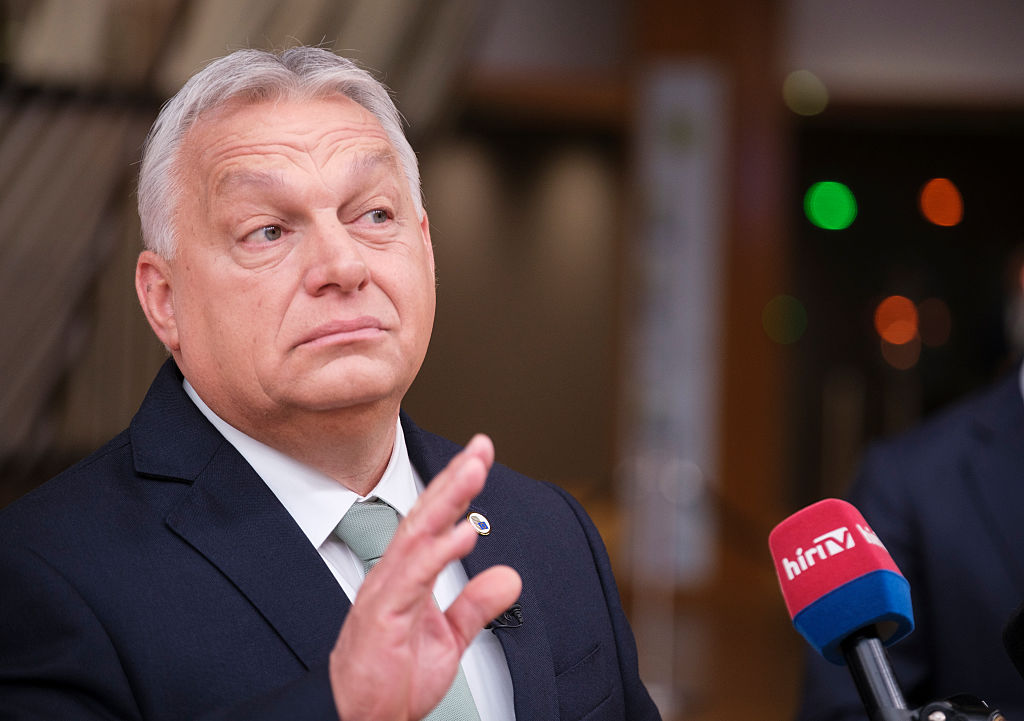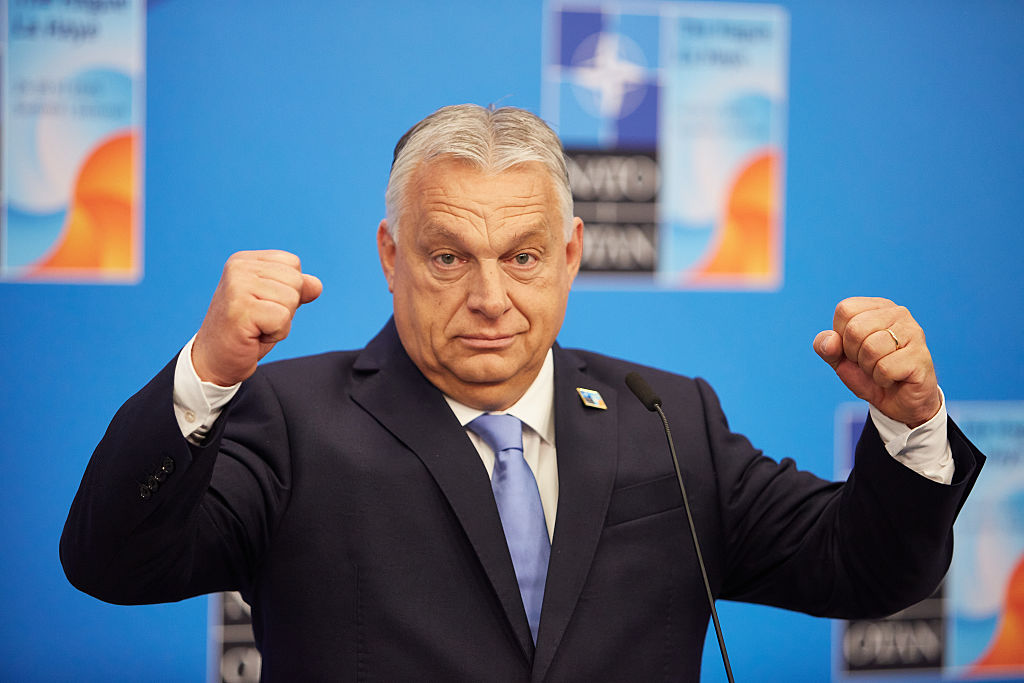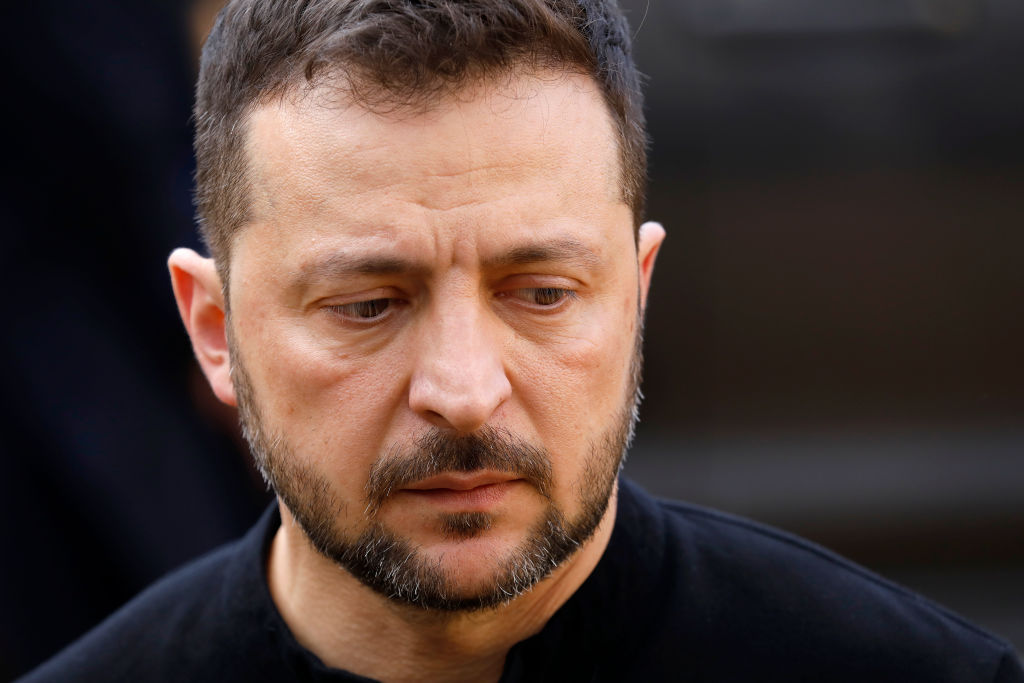There are times when moral blindness and political shamelessness become an art form. On Ukraine, Europe, which never seems to tire of lecturing the world on “values”, has perfected this craft to improbable heights of creativity. Brussels has turned that battered, unfortunate country into a sort of sacred object, a totem of Western virtue before which all nuance is to be, and has been, fiercely silenced. Among the questions forbidden amid this inquisitorial, groupthink frenzy, is how Kiev treats those within its borders who are not ethnically Ukrainian — the Hungarians of Transcarpathia, the Poles of western Volhynia, the Romanians of Bukovina, not to speak of its Russian residents — and whether or not Ukraine is particularly mindful of those famed “European values” when dealing with those too weak to stand up for themselves.
This should matter. For years, minority communities in Ukraine have been tormented by an accelerating erosion of their linguistic and cultural rights. An Education Law enacted in 2017, later reinforced by the infamous State Language Law from 2019, effectively prohibited the use of minority languages in secondary schools. In 2022, the Verkhovna Rada, Ukraine’s parliament, enacted legislation that forced all media in the country to be published in Ukrainian—the law, which was harshly criticised by Human Rights Watch and other NGOs, made it next to impossible for national minorities to retain a press of their own.
Ukrainian Hungarians have suffered much as a consequence. In Transcarpathia — home to some 150,000 ethnic Hungarians and to the former great Hungarian stronghold of Ungvár, today Uzhgorod — the Hungarian language was gradually erased from classrooms, courtrooms, and local administrations. Teachers were told to switch to Ukrainian, even when neither they nor their pupils spoke it fluently. In the name of national cohesion, Kiev has imposed a homogenising policy that, in practice, feels nothing other than forced assimilation. It bears reminding that Transcarpathia is not historically Ukrainian: The area’s connection to Kiev is a legacy of Stalinist expansionism, with it only being annexed by the then Ukrainian Soviet Socialist Republic in 1945. Before, with few interruptions, the region had belonged to Hungary ever since King Saint Stephen, of the House of Árpád, conquered it in the 11th century.
Of course, wartime is often synonymous with restrictions of civil liberties—it would certainly be unfair, indeed disingenuous, to expect anything else from the Ukrainians in their current, harsh predicament. But the crackdown began long before the Russian invasion of 2022. It does not reflect an emergency; instead, it is the implementation of an ideology, the belief, held by the vast majority of the country’s political class, that a strong Ukraine must be culturally and linguistically uniform.
This unhealthy obsession has long poisoned Kiev’s relations with its neighbours. Hungary, with its deep historical ties to Transcarpathia, has repeatedly protested; its offers of bilingual schooling and cultural support have been met with suspicion and accusations of “foreign interference.” In 2022, the Ukrainians demolished a monument in Mukachevo replacing the Hungarian Turul eagle with a Ukrainian coat of arms. Later, in 2023, they had numerous Hungarian cultural associations raided and shut. The targets were harmless village administrators and language activists. Their crime, it seems, was teaching Hungarian grammar. Is such repression of a minority, much of it composed of citizens of Hungary and, therefore, of the European Union, reasonable in a country so desperately in need of EU solidarity? Can the Ukrainians truly expect anything other than outrage from Budapest?
Poland, despite its closer relations to Kiev, finds itself in a similar contradiction: Warsaw has spent vast billions in aid, taken in over a million Ukrainian refugees, and lobbied tirelessly for Western arms to be given to Ukraine. Warsaw has persistently acted as a friend to Zelensky. Yet the Polish minority in Ukraine — some 140,000 people — continues to see Polish-language schools shuttered or “restructured” into Ukrainian ones. Not a single Polish-language university exists in Ukraine, even though Lviv was once a leading bastion of Polish culture. The graves of massacred Poles in Volhynia, victims of ethnic cleansing by Nazi-tied Ukrainian nationalists during the Second World War, are repeatedly desecrated even while their killers are publicly honoured by the modern Ukrainian state. Indeed, statues of Stepan Bandera, the wartime nationalist whose followers slaughtered tens of thousands of Poles, are erected in Ukrainian towns with official blessing. The same goes for other many vile, civilian-butchering thugs.
This is hardly just a symbolic quarrel. It is the measure of Kiev’s selective memory and, no less, of Europe’s selective outrage. The same Brussels officials who issue communiqués on the rights of gender minorities in Hungary—and even, just as nonsensically, on Hungarian Roma—have found nothing to say about the suppression of linguistic minorities in Ukraine.
It is this hypocrisy that truly corrodes Europe’s credibility. Europe’s silence on minority persecution does not help Kiev; it infantilises it, locking it in a posture of perpetual moral exemption. Understandably, there are those who are unable to look the other way. Budapest cannot be asked to ignore the insults suffered by its countrymen in Ukraine and, indeed, by itself. Its stance on the successive EU aid packages for Ukraine is not alien to Ukraine’s mistreatment of Hungarians in Transcarpathia. Even Poland’s patience is wearing thin. Recent disputes over trade and grain have added to Warsaw’s understandable, and rising, exasperation at Ukraine’s apparent inability to show its neighbours a modicum of respect. Polish President Nawrocki’s initiative to ban the Ukrainian nationalist flag was met with fury in Ukraine, but why should Poles be expected to keep mum while those who so desperately need their help wave the flags of Pole-slayers in the heart of Warsaw?
Europe’s task, if it still believes in the rule of law and assuming that the principles it proclaims are more than cynically deployed narrative tools, is to insist that Kiev comes to terms with its ethnic and linguistic diversity and drops its uniformising mania. For if Europe excuses everything in the name of necessity, we will soon find we have nothing left to defend. Europe’s blindness may be politically convenient, but it is strategically foolish. A Ukraine that alienates its own minorities will never be stable, nor genuinely European. And a Europe that applauds such behaviour is not defending democracy, it is hollowing it out. Europe is closing its eyes. It should open them, before the moral rot becomes irreversible.





On Ukraine, neither expropriation nor Tomahawks will make Putin blink